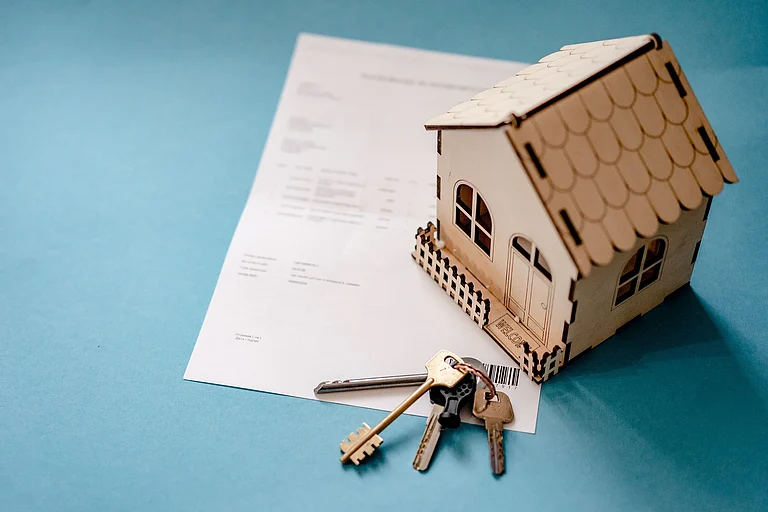
Summary of this article
Interest rates play a key role when choosing a home loan, but they’re not the only factor to consider. Other aspects such as loan tenure, processing fees, prepayment terms, and overall eligibility criteria are equally important in making the right borrowing decision.
Buying a home is often the biggest investment in a lifetime. However, along with your dream home, you also take on a long-term liability that usually must be serviced until retirement. Therefore, you need to proceed carefully and keep the following points in mind when taking a home loan.
Assessing Your Home Loan Affordability
What you can afford should be based on your ability to repay the liability incurred with a home loan. This depends on the loan amount and the applicable interest rate. Relying on selling the house in a few years at a higher price to repay the loan may not always work, especially if property prices decline or remain stagnant—as has been observed earlier may times. Therefore, it is important to assess your affordability and the loan’s impact on your personal finances before taking out a home loan.
Determining Your Loan Eligibility
Banks typically lend up to 50 to 60 times an individual's monthly net salary, based on current market norms. However, when assessing income, they exclude certain salary slip components that cannot be used to repay the loan. For example, allowances like LTA and medical allowances are not considered part of the net monthly income. This often explains the discrepancy between the eligibility amount shown on websites and the actual amount approved after loan application processing.
Credit Worthiness
The home loan eligibility depends on credit worthiness of the individual. Credit bureaus provide credit scores on a scale of 300 to 900 based on your previous credit card usage, how you maintained your bank accounts, any check bounces, existing loans, uninsured existing loans, loan repayments, how many times you have applied for loan or a credit card, among others. Individuals with a credit score greater than 700 are more likely to get a home loan.
Co-Application
What you can afford will also be reviewed by the bank that is providing you the loan. This would depend on your past and current financial position and ability to service the loan in the future. In case you want a loan amount higher than what you are being offered as an individual, you may want to have your spouse or parents as co-applicants. This helps you increase the overall limit that the bank can offer since there is more than one person sharing the repayment of loan and the combined limit will obviously be higher. But this can only work if the co-applicants have an independent source of income.
Duration Of Loan
Once again, keeping in mind how much you can afford to pay each month, try and keep the duration of the loan as low as possible. With a lower duration of loan, the EMI may be higher, but what you would pay as interest over the term of your loan would be substantially lower. If you can’t afford the higher EMI and have to necessarily take a higher duration loan, it would help to try and manage your savings in a way that help you pre-pay the loan with intermediate payments in the initial years itself so as to reduce your overall interest burden.
Types Of Interest Rates
The type of interest rate you choose has an impact on the monthly EMIs you pay. It is important that you know the difference between fixed rate home loans and floating rate home loans. For instance, if you opt for a fixed rate home loan, the EMIs don’t vary over the loan tenure. So, it is beneficial when the interest rates are expected to rise in the near future. In case of a floating rate home loan, the interest rate is determined based on the prevailing base rates, plus a floating rate. The EMIs vary based on the movement of base rates. It is beneficial when interest rates are expected to fall in the near future. You should also remember that different banks offer different interest rates on home loans. Therefore, you must negotiate with them to get the best possible rate.
Pre-Payment And Foreclosure Charges
One of the important features that you should consider in your home loan product is the availability of pre-payment facility. Most banks and housing finance companies allow borrowers to make part-prepayments towards the loan principal. For floating-rate home loans to individual borrowers, the RBI has prohibited lenders from charging any prepayment or foreclosure penalties. However, for fixed-rate loans or loans taken by non-individual borrowers (like companies or firms), lenders may still levy charges on prepayments or foreclosures.
It is worth comparing this feature across the product options you are evaluating, as this flexibility can help reduce your interest burden if you manage to close your loan earlier.
There are also many other factors to consider when opting for a home loan, such as the implications of delayed payments on your finances and credit history. It is clear, thus, that the interest rate of your home loan alone does not determine one’s decision to buy a home by taking a home loan.














